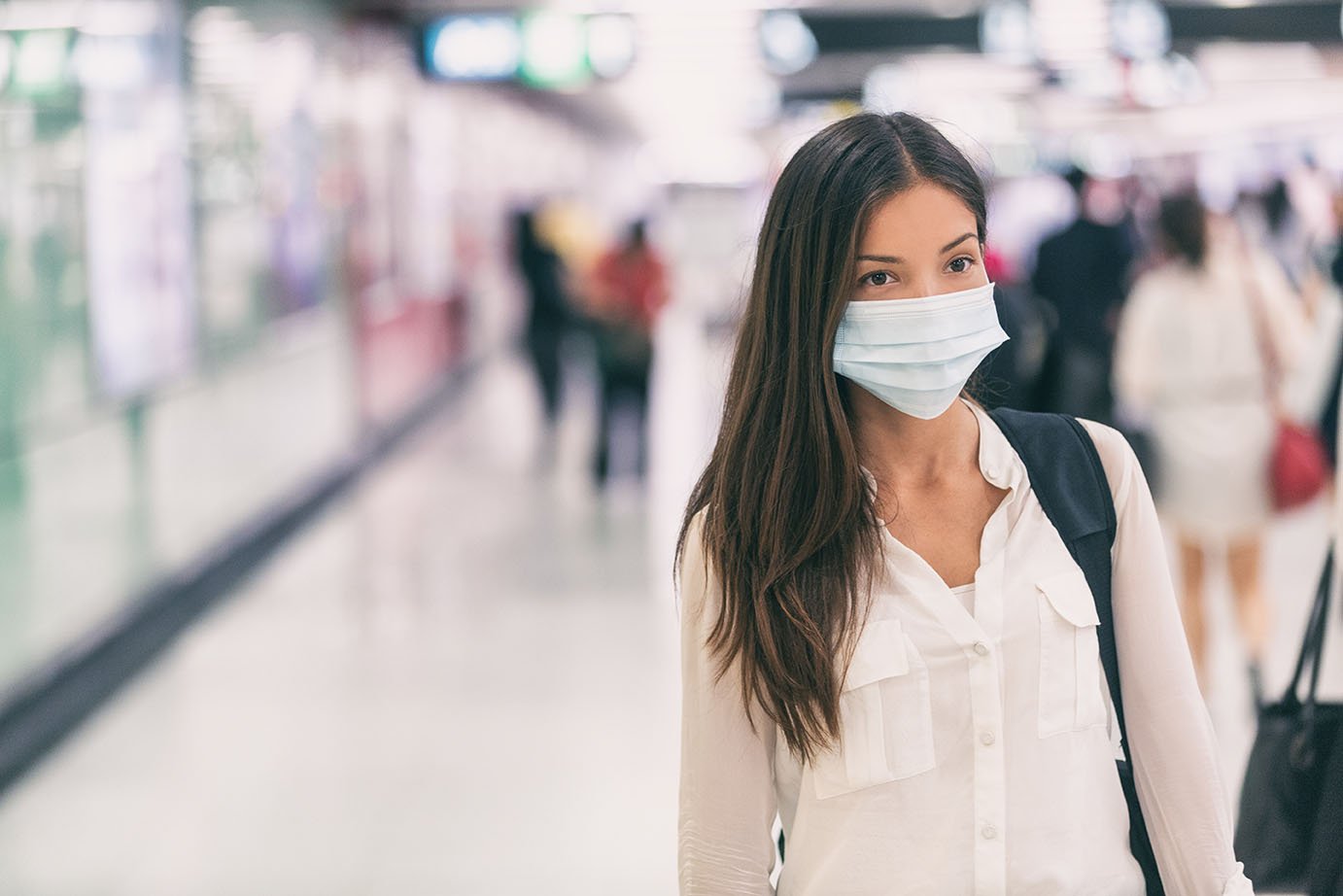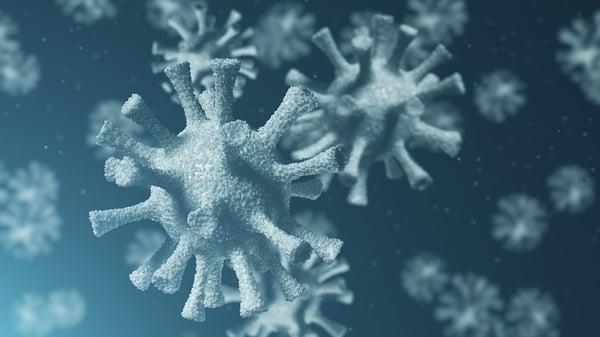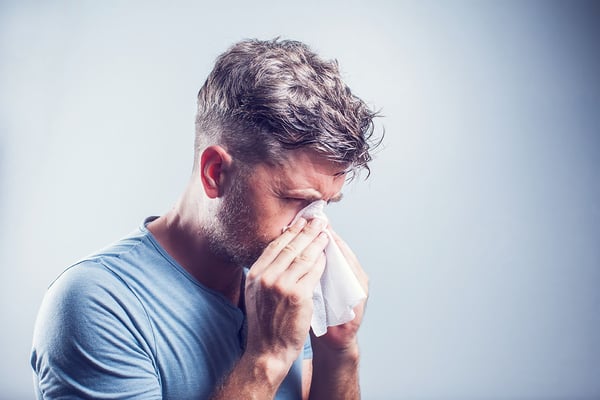
As cases of COVID-19 continue to mount across the globe, we’ve turned to our resident infectologist, Dr. Yolanda Rodriguez, for a breakdown of everything you need to know about this novel coronavirus. Whether you’re wondering how the virus is transmitted, what considerations to take into account when traveling, or even if it’s ok to place an order through Amazon, we’ve got you covered.
What is the coronavirus?
The name coronavirus is derived from the Latin ‘corona’, meaning crown, due to the crown-like projections of the viral envelope as seen under electron microscopy. There are hundreds of types of coronaviruses, most of which circulate among animals such as pigs, camels, bats and cats. Sometimes these viruses jump to humans—this is called a spillover event—and can cause disease.

Seven coronaviruses have been identified as causing human disease, three of which may have a more serious outcome in people. These viruses are SARS (severe acute respiratory syndrome - 2002, now disappeared) and MERS (Middle East respiratory syndrome - 2012, can still be found in camels). The third one is SARS-CoV-2 (formerly known as COVID-19 and 2019-nCoV), which emerged at the end of 2019. *It's important to note that while the name of the virus is SARS-CoV-2, the disease caused by the virus is still referred to as COVID-19. This new type was identified as the cause of a cluster of pneumonia cases in Wuhan, a city in the Hubei Province of China. It rapidly spread, resulting in an epidemic throughout China, with sporadic cases reported globally.
It’s important to know that information on this novel coronavirus is evolving. An interim guidance has been issued by the World Health Organization and by the United States Centers for Disease Control and Prevention.
Where is it found?
As we anticipate that the number of novel coronavirus cases will increase, we recommend that you refer to the following link for the most updated information related to countries where SARS-CoV-2 has spread:
Click here for more information
How is it transmitted?
At this time our understanding of the risk of transmission, or how the coronavirus spreads, is incomplete. Person-to-person transmission is thought to occur mainly via respiratory droplets, similar to influenza. However, given the current uncertainty regarding transmission mechanisms, airborne precautions are becoming routine in some countries, and in the settings of certain high-risk procedures in others.
How long after exposure to the virus will the symptoms take to appear?
The CDC believes that symptoms may appear anywhere between 2-14 days following exposure.
What are the symptoms?
The most common reported symptoms from confirmed cases have ranged from mild symptoms to severe illness resulting in death. Symptoms can include:
-
-
- Fever
- Cough
- Shortness of breath
- Sore throat
-
What's the difference between illness caused by the novel coronavirus, the flu or a cold?
People with coronavirus infection, the flu or a cold typically develop respiratory symptoms such as fever, cough and runny nose. Even though many symptoms are alike, they are caused by different viruses. Because of their similarities, it can be difficult to identify the disease based on symptoms alone. That’s why laboratory tests are required to confirm if someone has COVID-19, specifically.
How dangerous is it?
For the majority of people the coronavirus causes mild symptoms without major developments. However, it can manifest more severely in some people, and can lead to pneumonia or breathing difficulties in certain instances. More rarely, the virus can prove fatal.
Who is at higher risk of developing a severe infection?
Older people, and people with pre-existing medical conditions (such as diabetes and heart disease) appear to be more vulnerable to becoming severely ill with the virus.
What is the estimated death rate of the novel coronavirus at this moment?
At present, it is tempting to estimate the case fatality rate by dividing the number of known deaths by the number of confirmed cases. The resulting number, however, does not represent the true case fatality rate and might be off by orders of magnitude.
Click here for more information
Are there any specific medicines to prevent or treat the novel coronavirus?
Some specific treatments are under investigation and will be tested through clinical trials. To date, there is no specific medicine recommended to prevent or treat the novel coronavirus. However, those infected with COVID-19 should receive appropriate care to relieve and treat symptoms, and those with severe illness should receive optimized supportive care.
What can you do to protect yourself?
- Wash your hands frequently: Wash your hands frequently with soap and water, or use an alcohol-based hand rub if your hands are not visibly dirty.
- Practice respiratory hygiene: When coughing and sneezing, cover your mouth and nose with a flexed elbow or tissue – discard the tissue immediately after use into a closed bin and clean your hands with soap and water or an alcohol-based hand rub.
- Maintain social distancing: Maintain at least a 6 ft. distance between yourself and other people, particularly those who are coughing, sneezing and have a fever.
- Avoid touching your eyes, nose and mouth.
- If you have fever, cough and difficulty breathing, seek medical care early.
- Tell your health care provider if you have traveled in an area where SARS-CoV-2 has been reported, or if you have been in close contact with someone with who has traveled to an area where it has been reported and has respiratory symptoms.
- If you have mild respiratory symptoms and no relevant travel history, carefully practice basic respiratory and hand hygiene and stay home until you are recovered, if possible.
- As a general precaution, practice general hygiene measures when visiting live animal markets, wet markets or animal product markets.
- Ensure regular hand washing with soap and potable water after touching animals and animal products; avoid touching eyes, nose or mouth with hands; and avoid contact with sick animals or spoiled animal products. Strictly avoid any contact with other animals in the market (e.g., stray cats and dogs, rodents, birds, bats). Avoid contact with potentially contaminated animal waste or fluids in the soil or in general market facilities.
- Avoid consumption of raw or undercooked animal products
- Handle raw meat, milk or animal organs with care to avoid cross-contamination with uncooked foods, as per best practices of food safety.
Should I wear a mask to protect myself?
Wearing a medical mask can help limit the spread of some respiratory disease. However, using a mask alone is not guaranteed to stop infections and should be combined with other prevention measures including hand and respiratory hygiene and avoiding close contact with others – maintain at least a 3 ft. distance between yourself and other people.
It’s worth noting that the WHO advises to use medical masks conservatively, thus avoiding unnecessary wastage of precious resources and potential misuse of masks. This means using masks only if you have respiratory symptoms (coughing or sneezing), have suspected coronavirus infection with mild symptoms or are caring for someone with suspected coronavirus infection.
Is there any advice for travelers?
Beyond basic safety standards, the WHO does not recommend any specific health measures for travelers but is continuing to review the situation. Basic principles to reduce the general risk of acute respiratory infection are:
- avoid close contact with people suffering acute respiratory infections
- wash hands frequently, especially after contact with ill people or their environment
- avoid close contact with sick farm animals or wild animals
- people with symptoms of acute respiratory infection should practice cough etiquette:
- maintain distance
- cover coughs and sneezes with disposable tissues or clothing
- wash hands
Travelers who become sick within a month of their trip are encouraged to contact a medical doctor and seek medical advice. It is important to mention any recent travel to impacted areas, and any known contact with someone with severe acute respiratory illness who has traveled to an area where it has been discovered.
All travelers arriving from mainland China, or any travelers who have had exposure to a confirmed case of COVID-19 will be expected to self-isolate for a period of 14 days from the time they left mainland China or were exposed to the coronavirus.
What is self-isolation?
This means you should avoid situations that could facilitate the transmission of the virus such as any gatherings or events where you might come into contact with others; in particular, child care/pre-school centers, primary and secondary schools (including staff and students), elder care facilities, health care facilities, prisons, public gatherings, etc.
Click here for more information
How long is the incubation period?
The incubation period is the time between infection and the onset of clinical symptoms of disease. Current estimates of the incubation period range from 1-12.5 days, with median estimates of 5-6 days. These estimates will be refined as more data becomes available. Based on information from other coronavirus diseases, such as MERS and SARS, the incubation period of COVID-19 could be up to 14 days. The WHO recommends that the follow-up of contacts of confirmed cases is 14 days.
What should you do if you have close contact with a confirmed case?
If you have been in close contact with a confirmed novel coronavirus case you should self-isolate for 14 days. If you develop symptoms including fever, cough or difficulty breathing you should contact your doctor.
Can the coronavirus be caught from a person who presents no symptoms?
According to recent reports, it may be possible for people infected with the coronavirus to be infectious before showing significant symptoms. However, based on the data that is currently available, the people who exhibit symptoms are the ones causing the majority of virus to spread.
Does the novel coronavirus spread through aerosols?
When people sneeze or cough, they may spray big droplets but the droplets do not stay airborne for long, they fall. Smaller ones fall less quickly. Healthcare procedures like intubation can spray small droplets into the air; however, for the new coronavirus, we still need to see the data to understand how transmission has been assessed.
Can humans get infected from animals?
The animal source of SARS-CoV-2 has not yet been identified. This does not mean you can catch the novel coronavirus from any animal or from your pet. It’s likely that an animal source from a live animal market in China was responsible for some of the first reported human infections. To protect yourself, when visiting live animal markets, avoid direct unprotected contact with live animals and surfaces which have been in contact with animals.
How long does the coronavirus survive on surfaces?
It is still not known how long the coronavirus survives on surfaces, although preliminary information suggests that the virus may survive a few hours or more. Simple disinfectants are able to kill the virus, making it no longer viable to infect people.
Is it safe to receive a package from China or any other place where the virus has been identified?
Yes, it is safe. From experience with other coronaviruses, we know that these types of viruses don’t survive long on objects, such as letters or packages.
Where do we go from here?
As you’ve just learned, there’s a lot that’s known, but still quite a bit that isn’t, when it comes to this novel coronavirus. Having said this, we feel strongly that knowledge is power, and hope that this resource provides you with more clarity and confidence as things continue to develop. Whether you find yourself in an area impacted by the virus or not, the basic safety principles which have been outlined are practical tools that can and should be utilized in daily life, especially during cold and flu season.
As always, our team at Pravan is standing by to support our members however possible. If you have any questions, concerns, or feel that you may have been exposed or are experiencing symptoms, please reach out to us directly through our Spruce app.
References:
- CDC Coronavirus Disease 2019 (COVID-19) About/Symptoms:
- Ministry of Health Manatu COVID-19 (novel coronavirus)- Advice for travellers:
- WHO Coronavirus disease 2019 (COVID-19) Situation Report:
- https://www.who.int/docs/default-source/coronaviruse/situation-reports/20200213-sitrep-24-covid-19.pdf?sfvrsn=9a7406a4_4
- WHO Coronavirus disease (COVID-19) Travel Advice:
- WHO Global Research on Coronavirus (COVID-19):
- WHO Q&A on Coronaviruses (COVID-19):
- Worldometer: Countries where COVID-19 has spread:

